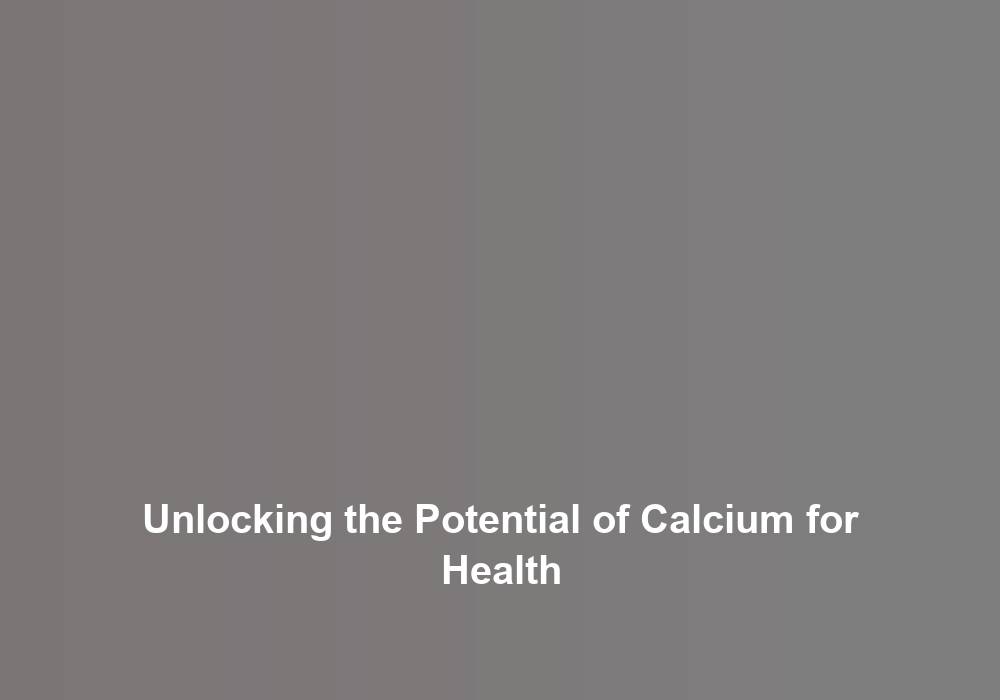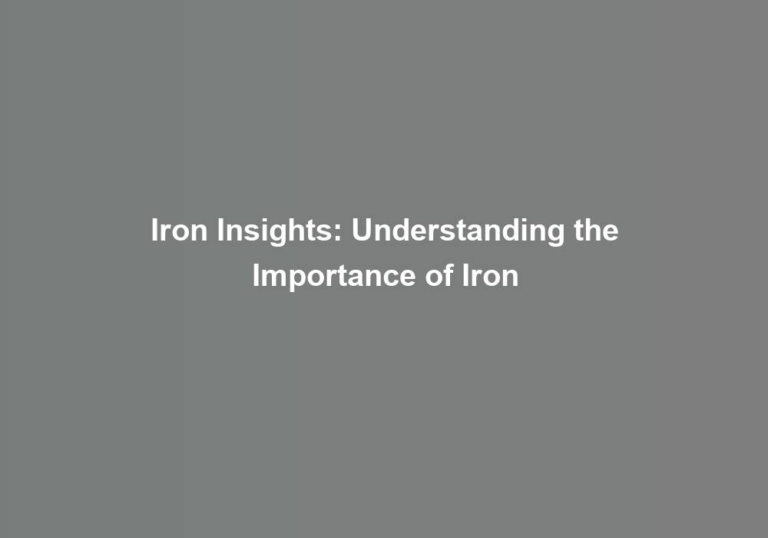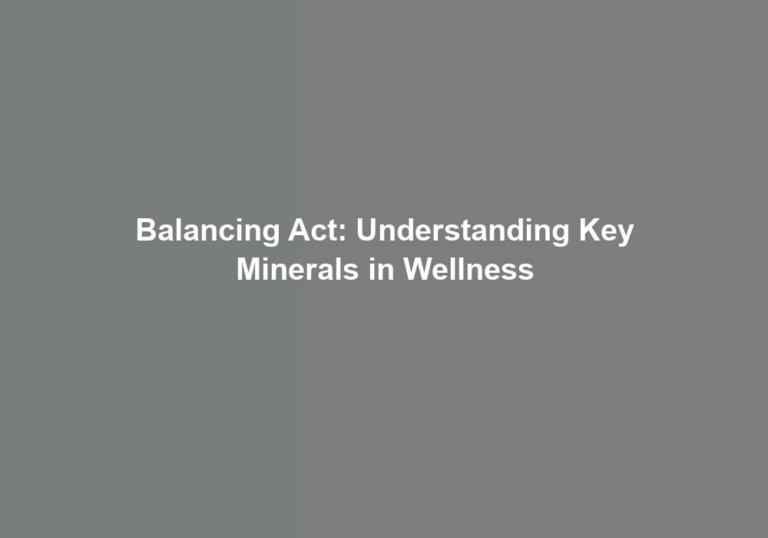Unlocking the Potential of Calcium for Health
So, you think youG??ve got the whole calcium thing figured out, huh? Think again. ThereG??s more to this mineral than meets the eye. You may be surprised to learn about the untapped potential of calcium for your health. From bone strength to muscle function, calcium plays a crucial role in your overall well-being. But before you brush it off as just another nutrient, there are some fascinating insights you need to uncover about how calcium can truly make a difference in your health.
The Importance of Calcium
Understanding the significance of calcium in your diet is crucial for maintaining strong and healthy bones. Calcium plays a pivotal role in bone density, which is vital for preventing conditions like osteoporosis and ensuring that your skeletal system remains robust and resilient. As you strive to belong to a community that values health and vitality, itG??s important to recognize that calcium is not only essential for bone health, but also for muscle function. Adequate calcium levels support muscle contraction and overall muscle function, allowing you to engage in physical activities with strength and agility.
Ensuring that you have sufficient calcium in your diet is not just about meeting a daily requirement; itG??s about investing in your long-term health and well-being, thereby cementing your place in a community that values longevity and vitality. By prioritizing calcium intake, you are taking proactive steps to maintain a strong and healthy body, which is essential for feeling a sense of belonging and connection within health-conscious circles.
Health Benefits of Calcium
Recognizing the significance of calcium in your diet, itG??s important to understand the numerous health benefits it offers beyond just bone strength and muscle function. Calcium plays a vital role in supporting overall health and well-being. One of the key benefits of calcium is its ability to help prevent osteoporosis, a condition characterized by fragile and brittle bones. Adequate calcium intake, along with vitamin D, can help maintain strong bones and reduce the risk of fractures, especially as you age. Additionally, calcium is essential for proper muscle contraction, nerve function, and blood clotting.
Furthermore, calcium has been linked to other health benefits such as weight management and the reduction of the risk of colorectal cancer. Studies have suggested that calcium may aid in weight loss and help maintain a healthy body weight. ItG??s also worth noting that adequate calcium levels in the body may contribute to lower blood pressure and a reduced risk of developing hypertension.
In some cases, individuals may consider calcium supplementation to meet their daily calcium requirements, especially if they have dietary restrictions or difficulty consuming enough calcium-rich foods. However, itG??s important to consult with a healthcare professional before starting any supplementation to ensure itG??s appropriate for your individual needs.
Dietary Sources of Calcium
To ensure you meet your daily calcium requirements, itG??s important to be aware of the various dietary sources of calcium available to you. Including calcium-rich foods in your diet can help you maintain strong bones and support overall health. Here are some common dietary sources of calcium:
| Dairy Products | Non-Dairy Sources |
|---|---|
| Milk | Tofu |
| Cheese | Kale |
| Yogurt | Broccoli |
Incorporating these foods into your meals can be an enjoyable way to boost your calcium intake. Calcium-rich recipes can also help you meet your daily requirements. Consider trying dishes such as cheesy spinach and kale omelets, tofu stir-fry with broccoli, or yogurt parfaits with added fruits and nuts. These recipes not only provide essential calcium but also offer delicious and satisfying meal options.
If you find it challenging to obtain enough calcium from your diet alone, calcium supplements can be a convenient solution. However, itG??s essential to consult with a healthcare professional before starting any supplements to determine the right dosage for your individual needs.
Calcium Deficiency and Risks
Adequate calcium intake is crucial for maintaining optimal bone health and preventing potential health risks associated with calcium deficiency. Without enough calcium, your body may struggle to maintain strong bones and teeth, which could lead to various health issues. Here are some important points to consider in relation to calcium deficiency:
-
Preventing Osteoporosis: Calcium deficiency can increase your risk of developing osteoporosis, a condition characterized by weakened bones that are more prone to fractures. By ensuring adequate calcium intake, especially during adolescence and early adulthood, you can help build up your bone density and reduce the risk of osteoporosis later in life.
-
Childhood Development: Calcium plays a critical role in childhood development, as it is essential for the growth and strength of bones. Insufficient calcium during childhood can hinder proper bone development and increase the likelihood of bone-related problems in the future.
-
Health Risks: In addition to bone-related issues, calcium deficiency can also lead to other health risks such as muscle cramps, irregular heartbeat, and numbness or tingling in the extremities. Ensuring that you meet your daily calcium requirements can help prevent these potential health issues.
-
Overall Well-being: Adequate calcium intake is not only important for bone health but also for overall well-being. It contributes to proper muscle function, nerve transmission, and hormone secretion, all of which are vital for your bodyG??s optimal functioning.
Optimizing Calcium Absorption
Optimizing calcium absorption is essential for ensuring that your body effectively utilizes the calcium you consume, building on the foundation of maintaining optimal bone health and preventing associated health risks. Improving absorption is key to maximizing the benefits of calcium for your overall well-being. There are several strategies you can incorporate into your daily routine to enhance calcium absorption.
Firstly, itG??s important to ensure an adequate intake of vitamin D, as it plays a crucial role in calcium absorption. Spend time outdoors to allow your skin to naturally produce vitamin D when exposed to sunlight, and include vitamin D-rich foods such as fatty fish, egg yolks, and fortified dairy or plant-based milk in your diet.
In addition, be mindful of your overall dietary habits. Consuming sufficient amounts of calcium-rich foods, such as dairy products, leafy greens, and fortified cereals, can contribute to optimizing calcium absorption. Furthermore, spreading your calcium intake throughout the day, rather than consuming it all at once, can help enhance absorption.
Moreover, incorporating weight-bearing exercises into your regular physical activity routine can also support calcium absorption and bone health. Activities like walking, dancing, and weightlifting can aid in maximizing the benefits of the calcium you consume.
Conclusion
So, next time youG??re thinking about skipping that glass of milk, think again! Your body needs calcium to stay healthy and strong. Did you know that 99% of the bodyG??s calcium is stored in the bones and teeth? ThatG??s a pretty significant amount, showing just how important calcium is for our overall health. Make sure youG??re getting enough of this essential mineral to unlock its full potential for your well-being.







